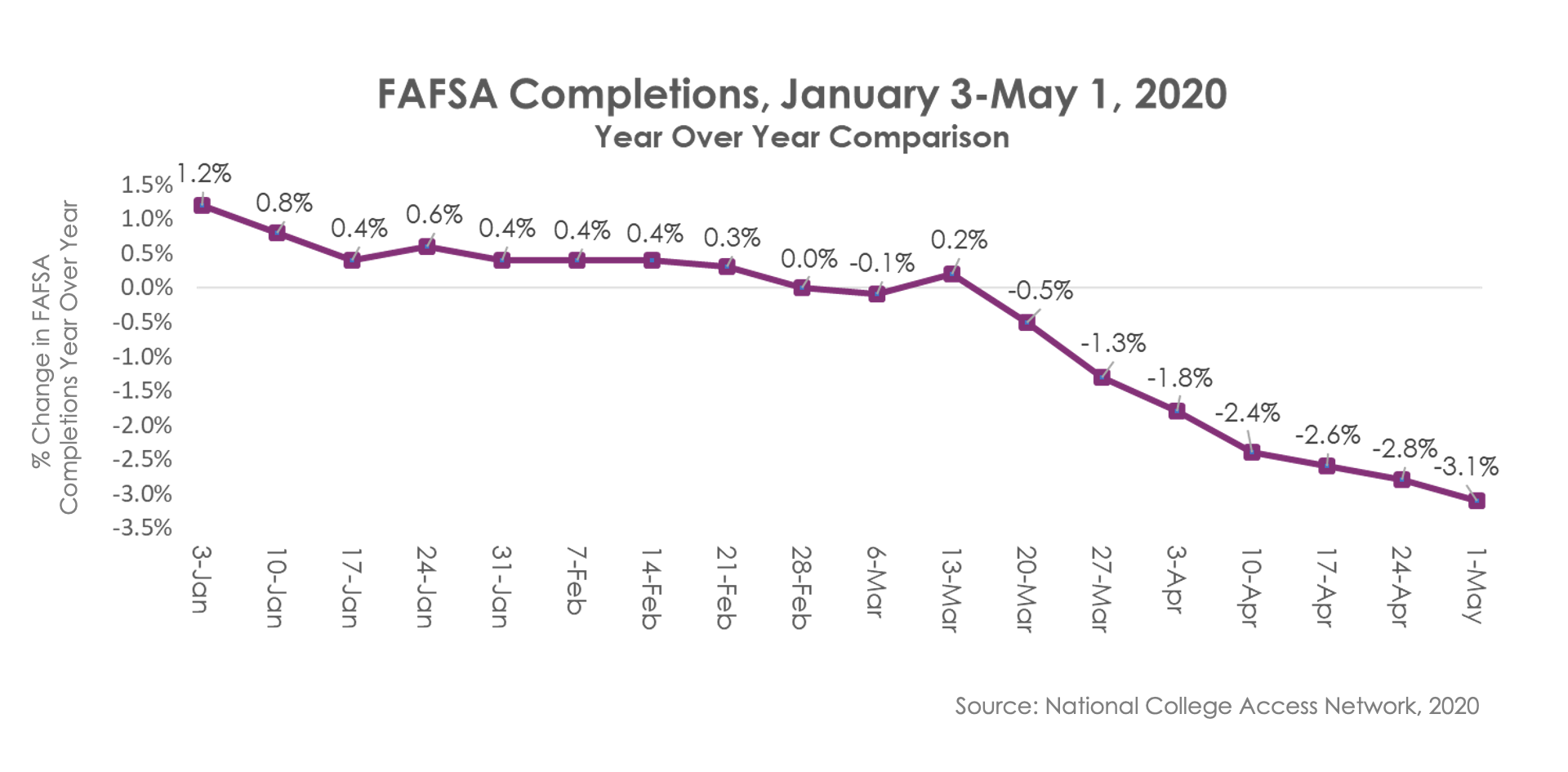Colleges are bracing for a decline in enrollment next year as the coronavirus prompts high school seniors to reconsider their plans for the fall. In recent surveys, graduating seniors have balked at choosing colleges that are canceling campus tours, moving classes online or charging more than their families can now afford. That final reason will weigh most heavily on students who lack access to financial aid, and its impact may persist well beyond states’ lockdown orders.
Coronavirus could depress college enrollments, because applications for financial aid may fall as the need for financial aid rises.
Data on financial aid applications can help state and local leaders anticipate and address this problem as early as possible. Students must complete the Free Application for Federal Student Aid to be eligible for financial aid from the federal government, as well as from many states and colleges. Every week from October through June, the federal government releases new data on how many students have completed the FAFSA. Those data are early indicators of college enrollments the following year.
So far, the news is troubling. The National College Access Network reports that, since mid-March, FAFSA completion rates have not kept pace with last year’s rates. There may be benign reasons for this finding. Some colleges have responded to the COVID-19 crisis by extending their financial aid deadlines, for example. Yet it’s just as possible that shuttered schools are less able to offer students the support they need to complete and submit their forms.

Policymakers can watch their FAFSA data closely in the coming months to see if the trends worsen. They can use free online tools like NCAN’s FAFSA Tracker to monitor filings at the state, district and even school levels. Such tools can help them identify districts or schools that need swift interventions. Some states — including Alabama, Colorado, Idaho, Minnesota, Nebraska and Oklahoma — publish their own dashboards featuring weekly updates of FAFSA data at the state, district and school levels.
Public dashboards like those can help policymakers follow trends or identify schools and districts that need support, but they cannot legally reveal the identity of students who have or haven’t completed the FAFSA. The FAFSA Completion Initiative addresses this challenge in participating states by giving schools and districts access to data about their own students. Armed with a special license to view those data, school and district staff can identify and assist students who haven’t submitted FAFSA forms. The initiative began in 2014 as a partnership between the U.S. Department of Education and a handful of states. It has since grown to include Indiana, Iowa, Maryland, Minnesota, Nebraska, New York, Ohio and the District of Columbia.
States are already enacting policies to blunt the impact of school closures on student financial aid applications. Higher education agencies in Indiana and New Jersey have extended their state FAFSA deadlines, for example. States like Louisiana and Iowa have launched social media campaigns or stepped up virtual efforts to help students complete their FAFSA applications.
For the time being, states seeking to boost their FAFSA numbers will have to do without one of the most effective tools in their toolbox — face-to-face encounters with students, some of whom may lack the tools for seeking help online. Better data can help educators determine which students need extra support and find the best avenues to reach them.










